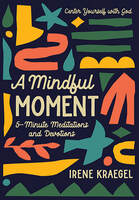|
In the children’s worship class at my church, there is a tug-of-war of sorts over the music. For a long time, the standard request every Sunday morning was Joshua Fought the Battle of Jericho. Kids lined up along the wall and sang the song, and then fell down at “the wall came tumbling down” – except that several children found it hilarious every week to remain standing, and then we would sing it again to see if we could get the whole wall down.
After several years of this routine, a number of us teachers felt that we could no longer take it. The song was loud and chaotic, and there was no evident spiritual benefit. Some of the kids really disliked it. So we wielded our adult power and stopped taking that request in favor of songs like This Little Light of Mine and Jesus Loves Me. Before long, a formal petition was registered by one child participant in the form of a letter taped to the children’s worship wall: “Don’t band Joshwa foght the Batle of Jaraco from this cherch.” Our worship director’s comment? “Song preference troubles start young.” Indeed, we all seem to have strong opinions about church music. Song preferences run deep in the river of culture, generational experience, and personal life history. I have struggled through many a church worship service in my life fuming about the music. This, I could point out, is not the most Christian attitude toward worship. Mindfulness has something to offer here. The things that get me fuming about song choice are thoughts. Not facts, but judgments – my interpretations and cognitive reactions to the songs. Recently, I have started practicing mindful awareness during worship services.
Mindfulness helps me worship.
6 Comments
Imposter Syndrome is the belief that you are not qualified for your work, even when other people think you are - the belief that if others discover that you don't have what it takes to meet expectations competently, they will be disappointed and you will be shamed. Some groups at particular risk of Imposter Syndrome include first-generation college students, graduate students, minority group members, high achievers, and young women in the workforce. But any of us can fall prey to this anxious condition, and Christian mindfulness can offer relief. Here are some steps to follow:
Collect feedback and facts Opening ourselves up to the truth can be the hardest thing to do, both when it comes to our strengths and our weaknesses - it feels vulnerable. But this is just what you'll need to do to build a rational framework for addressing Imposter Syndrome anxiety. Start by asking yourself (and/or others) these questions:
Write down the specific answers to these questions. Consider including feedback from others who know your work well - your boss, your professor, a coworker, or a customer. No interpretation, arguing, or minimizing here - keep your observations as factual as possible. Now it's time to create some observational distance. Notice thoughts Here is where mindfulness kicks in. Read over the feedback and facts you wrote down and start to pay attention to the thoughts that arise in your mind while you read. With an objective and curious awareness, begin a list of these thoughts. Examples might include thoughts like “I have no idea what I’m doing," “they don’t know the whole story,” or “that was so dumb of me.” You might notice pleasant thoughts here too, such as "that was really nice of my boss to say” or “maybe they liked what I did.” Whatever the thoughts are, without judgment, write them down and cultivate an attitude of light-hearted (even amused) attentiveness as you read them over. To cultivate observational distance, it might help to imagine that someone else wrote this thought list and you are simply reading it over with curiosity. In this step, you are becoming more aware of your thought cycles, the mental architecture that is driving your emotions and perceptions of your competence. Notice feelings Now, it’s time to recognize some feelings. Put your writing aside and take a moment to close your eyes, sit in silence, and feel the emotional reaction to what you have written down.
So now you have three lists:
Set these lists before God with curiosity and openness to what He might do with them. Then give yourself time - lots of time - to observe these three areas day-in and day-out. Keep writing down your observations in each of these areas, and keep setting these before God to see how He might speak into them. As you’re ready, consider adding one of these more formal mindfulness practices into your routine:
Along the way, engage in active beginner’s mind. This means a recognition that you (like all of us) come to each moment as a beginner. None of us can be a true expert in anything, since every moment in this vast, mysterious universe is brand new to us. Only God truly understands it all - we are free to be small and dependent learners during our short time here on earth. How freeing! You don’t need to change your feelings or fears to move out of Imposter Syndrome, you only need to cultivate observational distance from those feelings and fears while also cultivating awareness of deeper truths. You are learning, just like the rest of us. You will make mistakes, and those will be opportunities for more growth and transformation. God has given you abilities and passions, and he will use those to accomplish his work in the world. You need only bring what you have and he will take care of the rest. |
Author
I am Irene Kraegel. I am licensed as a clinical psychologist and teach mindfulness on a faith-based university campus. I practice mindfulness because it opens me up to God (a.k.a. brings joy). I am writing here in hopes of sharing some of my experiences and thoughts related to the practice of mindfulness in the life of a Christian. Thanks for reading! Books
Blog archives
December 2023
|





